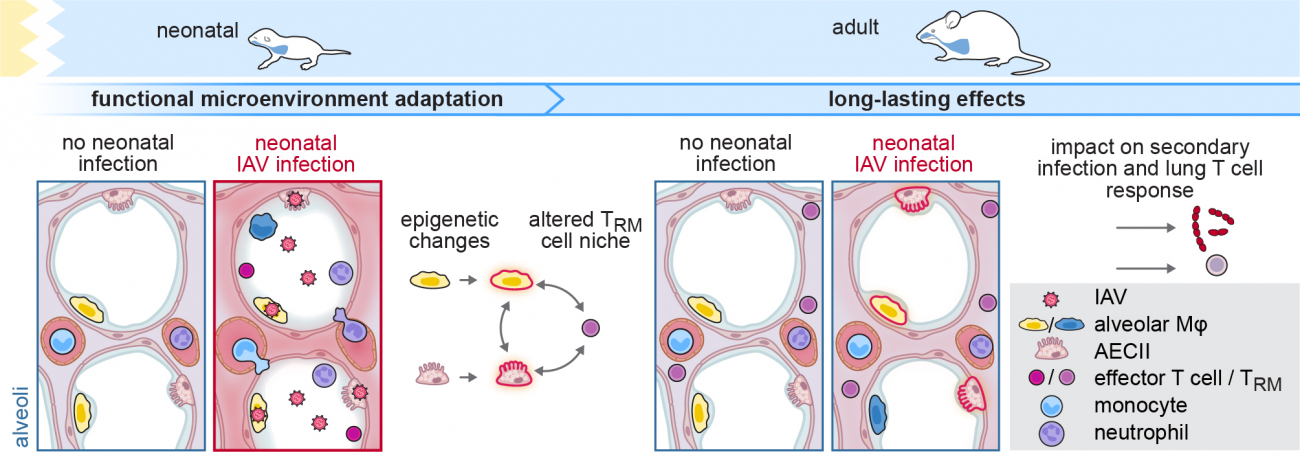Long-lasting consequences of early-life influenza A virus infection for the tissue-resident memory T cell niche and susceptibility to secondary infections
In this project, we investigate the long-lasting consequences of early-life influenza A virus (IAV) infections in terms of adaptation of the lung microenvironment and susceptibility to secondary bacterial infections later in life.
In particular, we examine how IAV infections alter lung-resident immune cell populations. These alterations may contribute to the formation of tissue-resident memory T cell niches and affect the response to secondary pneumococcal infections in adulthood.
Team
Publications
Early-life vitamin A treatment rescues neonatal infection-induced durably impaired tolerogenic properties of celiac lymph nodesMangge Zou, Joern Pezoldt, Juliane Mohr, Lars Philipsen, Andrea Leufgen, Vuk Cerovic, Carolin Wiechers, Marina Pils, Diego Ortiz, Lianxu Hao, Juhao Yang, Michael Beckstette, Aline Dupont, Mathias Hornef, Petra Dersch, Till Strowig, Andreas J. Müller, Jens Raila, Jochen Huehn 2024 Cell Reports
|
Tbx21 and Foxp3 Are Epigenetically Stabilized in T-Bet+ Tregs That Transiently Accumulate in Influenza A Virus-Infected Lungs.2022 Int J Mol Sci
|
Postnatal expansion of mesenteric lymph node stromal cells towards reticular and CD34+ stromal cell subsetsPezoldt J, Wiechers C, Zou M, Litovchenko M, Biocanin M, Beckstette M, Sitnik K, Palatella M, van Mierlo G, Chen W, Gardeux V, Floess S, Ebel M, Russeil J, Arampatzi P, Vafardanejad E, Saliba AE, Deplancke B, Huehn J. 2022 Nat Commun
|



